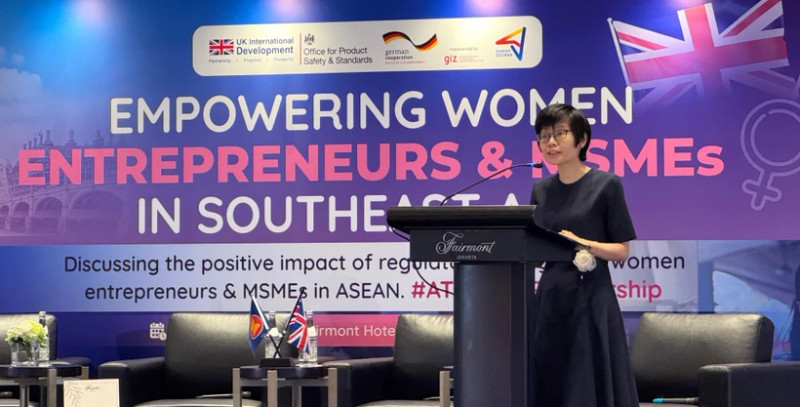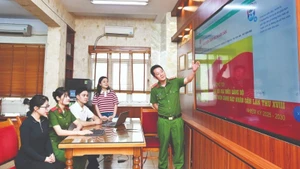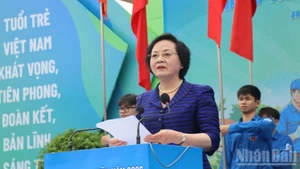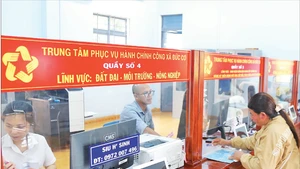Huong made the statement at a conference in Jakarta, Indonesia on March 6 to introduce the study “Regulatory reform for businesses and consumers in ASEAN countries – understanding potential impacts on gender equality and MSMEs”. The study was jointly conducted by the UK and the UK-based Centre for Strategy & Evaluation Services (CSES).
She noted that strategic reforms, such as streamlining business registration processes and promoting financial inclusion, can encourage the growth and success of women-led enterprises.
UK Ambassador to ASEAN Sarah Tiffin stated that empowering women is essential not only for society but also for encouraging their participation in business, innovation, and economic capacity-building.
The UK places women at the focus of its work with ASEAN and is committed to supporting the region in promoting inclusivity in business, which will, in turn, drive economic growth.
She further noted that the country is implementing six key programmes in ASEAN to ensure the rights and opportunities of women in the digital age, with all having a broad scope, and aiming at ensuring the advancement of women across the region.
According to Nguyen Khang, a representative of the UK Embassy in Hanoi, women entrepreneurs in Vietnam and ASEAN often face challenges related to complex legal policies, and limited access to legal resources as well as intellectual property (IP) management systems.
Therefore, the conference focused on solutions to help women-led small and medium enterprises (SMEs) utilise and protect IP rights, shape an effective regulatory reform framework to enhance MSME performance, and advance Women’s Economic Empowerment (WEE) initiatives in ASEAN.
Across the region, MSMEs account for 99% of all businesses and 85% of total jobs but contribute only 18% of exports. Women lead most micro-enterprises, many of which remain in the informal sector, facing additional barriers such as limited access to finance, digital tools, and regulatory information.
















